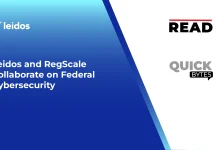Exscientia plc announced that it has entered into an agreement to acquire GT Apeiron’s interest in its oral CDK7 inhibitor program, thereby gaining full control of GTAEXS617 (‘617) and all related intellectual property.
The ELUCIDATE monotherapy dose escalation phase is designed to evaluate the safety, pharmacokinetics and pharmacodynamics of ‘617 in advanced solid tumors. Recruitment for the study is progressing well and data from the monotherapy dose escalation phase are expected to be published in the second half of 2024. In late 2024/early 2025, the study will transition to a combination therapy dose escalation phase. The first tumor type to be evaluated in this part of the study is expected to be HR+/HER2- breast cancer patients who have progressed on CDK4/6 inhibitors.
Also Read: Sapio Sciences Launches Partner Program to Accelerate Research and Diagnostics
“We are very pleased to now have full control of this potentially transformative asset,” said David Hallett, Ph.D., Interim Chief Executive Officer and Chief Scientific Officer of Exscientia. “This underscores our confidence that we have used artificial intelligence to develop not only a potent and selective compound, but also one with balanced overall properties; these include a reversible mechanism of action and an appropriate human half-life to maximize the therapeutic index of this important cellular mechanism. CDK inhibitors are an important class of cancer drugs and we believe our highly differentiated compound has the potential to significantly increase the impact for patients and exemplifies our leadership in technology-driven drug design.”
Under the agreement, Exscientia will receive full intellectual property rights and full control of the CDK7 inhibitor program. Exscientia will pay GT Apeiron $10 million in cash and $10 million in equity and will cover all existing development costs and pay single-digit royalties when Exscientia or a third party commercializes ‘617. Following the transaction, Exscientia is expected to have cash on hand well into 2027.
SOURCE: Businesswire




